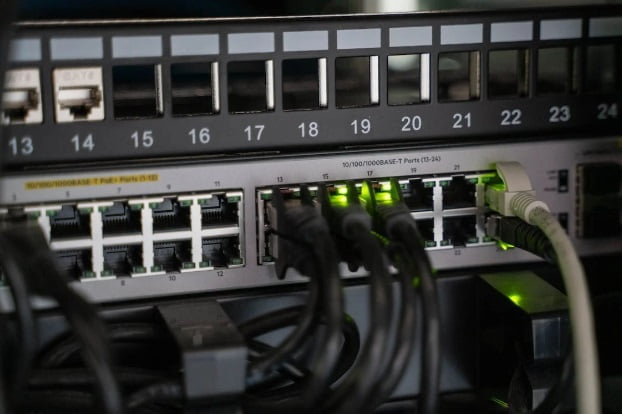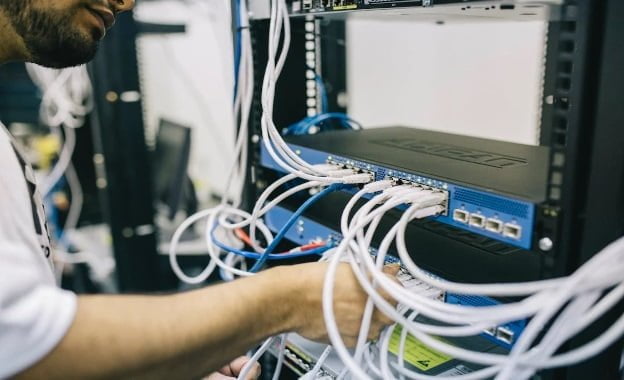Most servers nowadays use virtualization software that allows different operating systems to be hosted on a single machine. Although virtualization is becoming more common, there are still use cases that call for a bare metal server.
So, what are bare metal servers? How do they work? Whether you’re looking for a new server setup or an upgrade to your old one, keep reading to find everything you need to know about these essential machines.
What Are Bare Metal Servers?
Bare metal servers are dedicated, physical computer servers that are not shared with any other tenants, not even those in the same data center. Due to the nature of its intended use, stability, durability, and dependability are essential. Since you don’t have to share your resources with your neighbors, you can count on consistent performance.
Applications deployed to such servers execute directly inside the server’s operating system. More power and flexibility are yours with the help of a hypervisor.
In order to generate and execute virtual machines on a bare metal server, a hypervisor is required. The hypervisor’s built-in management suite facilitates the administration of the host machine’s virtual machines. Because hypervisors distribute the work across several VMs, users benefit from increased dependability and versatility.
A bare metal server provides more flexibility and access while developing a service’s or app’s underlying infrastructure. You won’t require as many specialized software solutions as you would in a virtual setting, simplifying the process significantly.
Why Should You Invest In Bare Metal Servers?
Bare metal servers outperform and outpower virtualized servers in terms of performance, power, and security.
Bare metal servers are best for video encoding and rendering farms, as well as high-demand, mission-critical applications like databases and business intelligence software. Businesses that rely on constant uptime often use them.
Let’s look more closely at some of the benefits of bare metal servers that we haven’t talked about yet:
Render Farms
Businesses that rely on resource-intensive, real-time collaboration and communication programs might greatly benefit from using bare metal servers.
One such example is the use of a large network of specialized computers in the creation of computer-animated films by 3D animation studios. These servers are useful since they provide a lot of space and power for very few leasing payments and no commitments.
Big Data Processing
Companies that need to analyze vast volumes of data might benefit from using bare metal servers. High-performance computing characteristics built into bare metal servers allow them to swiftly process massive data sets. This makes them ideal for businesses that need fast, real-time processing and analysis of massive data sets.
Because of their on-demand nature, bare metal services also provide businesses with the agility they need to respond swiftly to shifting demands since they only use the resources they really need at any given moment.
Superior Processing Speed
In order to maximize the efficiency of their HPC systems, numerous businesses opt for GPU-configured bare metal servers. The goal of developing these systems is to maximize speed and performance. They excel at high-performance computing applications like deep learning, predictive analytics, and risk modeling because of this.
Whether you’re in the healthcare or financial industries and need to address complex data challenges, a GPU-enabled HPC system can help you succeed and remain ahead of the curve.
Also Read: How to Convert Spotify Music to MP3 — MuConvert Spotify Music Converter
Capital and Advertising Technology
Fast and secure data processing is essential for the success of both the advertising technology and financial technology sectors. These sectors often choose bare metal servers because of their fast speeds, efficiency, and availability. These sectors rely on them to manage assets and build user profiles. Bare metal is appropriate for managing sensitive data due to its enhanced security characteristics.
Creating Customized Bare Metal Environments
Bare metal refers to a virtualization setup where the hypervisor is installed and operated directly on the hardware. No host OS is required because of the way it communicates with the hardware to facilitate standard virtual machine functions.
In these setups, you’re the only tenant of the hardware, network, and other components of your server. That’s why they’re ideal for any application where following compliance regulations is absolutely crucial.
If you need to fulfill strict performance requirements or prevent unauthorized users from accessing sensitive information, a bare metal server is the way to go.

Final Thoughts
Bare metal server use is on the increase again, and industry analysts predict that the bare metal cloud market will expand to $5.6 billion between 2022 and 2031, growing at a CAGR of 26.1%. This service provides a reliable, scalable, and long-term option for maintaining the highest possible quality and safety of your data.
If you’re going to purchase or lease a bare metal server, you should put some thought into managing the server’s hardware and software to get the most out of it.
Mustafa Al Mahmud is the founder and owner of Gizmo Concept, a leading technology news and review site. With over 10 years of experience in the tech industry, Mustafa started Gizmo Concept in 2017 to provide honest, in-depth analysis and insights on the latest gadgets, apps, and tech trends. A self-proclaimed “tech geek,” Mustafa first developed a passion for technology as a computer science student at the Hi-Tech Institute of Engineering & Technology. After graduation, he worked at several top tech firms leading product development teams and honing his skills as both an engineer and innovator. However, he always dreamed of having his own platform to share his perspectives on the tech world. With the launch of Gizmo Concept, Mustafa has built an engaged community of tech enthusiasts who look to the site for trusted, informed takes on everything from smartphones to smart homes. Under his leadership, Gizmo Concept has become a top destination for tech reviews, news, and expert commentary. Outside of running Gizmo Concept, Mustafa is an avid traveler who enjoys experiencing new cultures and tech scenes worldwide. He also serves as a tech advisor and angel investor for several startups. Mustafa holds a B.S. in Computer Science from HIET.
